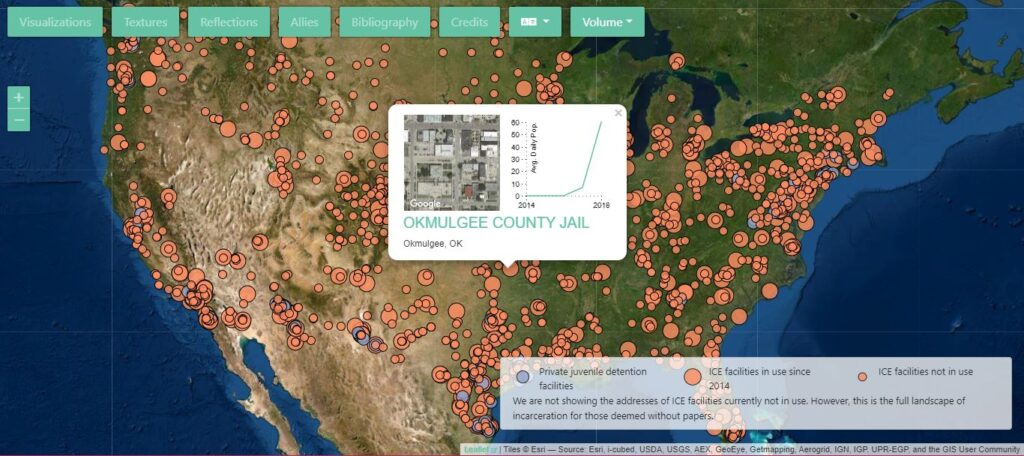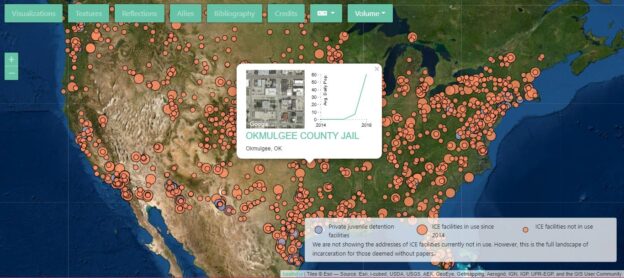When reading the introductions to the three editions of Debates in the Digital Humanities, I could see a trajectory emerge in the scope and purpose of the DH. In the 2012 edition, DH is an emergent field that needs to find its place in the galaxy of academia; part of the issue is determining who’s in and who’s out this “Big Tent” that encompasses so many disciplines and skills. In my opinion, the process at the of the publication might be the most innovative aspect of it: a semi-public peer-to-peer review website that encouraged scholars to view and comment each other’s work, therefore creating a more cohesive publication, but also fostering a sense of community. This type of process is reflected in Reviews in the DH, where a pool of reviewers examines DH projects that are submitted every month. Project directors who submit their work agree to become part of the review pool, therefore creating a sense of continuity and reciprocity.
The introduction to Debates in the Digital Humanities 2016 acknowledges that the growth of the field caused tensions and challenges, and that meaning can emerge from these points of friction. The paradigm of the “Big Tent” itself gets challenged in favor of a more open metaphor, like a trading post. This opening up to diversity in the DH is well represented by the Digital Black Atlantic and its mission of decolonizing the DH. A perfect example of this practice is the Early Caribbean Digital Archive, a digital archive that aggregates documentary materials related to the literary history of the Caribbean, which are mostly located in former colonial countries.

The 2019 edition is the one that resonated the most with me, because of the feeling of urgency that underlies it. In these discouraging times, it is empowering to know that the DH can be a place of informed resistance, a powerful instrument for social justice. Torn Apart/Separados is the project that reflects this new, activist phase of the DH. In an interactive map that shows ICE detention centers across the US (Volume 1) and the funds awarded to ICE by congressional district (Volume 2) , Torn Apart/Separados makes it impossible to un-see the devastating impact of Trump’s “zero tolerance” immigration policy in 2018. Even with all its challenges and bumps in the road, the trajectory of the DH seems to be one of growing self-reflection and changemaking. The field has moved from trying to understand and justify itself, to opening to new disciplines, new communities, and new applications, finding meaning in the divergences, and new opportunities for resistance and resilience in a troubled world.
Bibliography
- “Early Caribbean Digital Archive.” Early Caribbean Digital Archive, https://ecda.northeastern.edu/. Accessed 1 Sept. 2020.
- Gold, Matthew K. “Introduction: The Digital Humanities Moment.” Debates in the Digital Humanities, 2012, https://dhdebates.gc.cuny.edu/read/untitled-88c11800-9446-469b-a3be-3fdb36bfbd1e/section/fcd2121c-0507-441b-8a01-dc35b8baeec6#intro.
- Gold, Matthew K., and Lauren F. Klein. “Introduction: A DH That Matters.” Debates in the Digital Humanities, 2019, https://dhdebates.gc.cuny.edu/read/untitled-f2acf72c-a469-49d8-be35-67f9ac1e3a60/section/0cd11777-7d1b-4f2c-8fdf-4704e827c2c2#intro.
- Klein, Lauren F., and Matthew K. Gold. “‘Digital Humanities: The Expanded Field | Lauren F. Klein and Matthew K. Gold.’” Debates in the Digital Humanities, 2016, https://dhdebates.gc.cuny.edu/read/untitled/section/14b686b2-bdda-417f-b603-96ae8fbbfd0f#intro.




